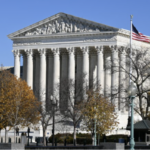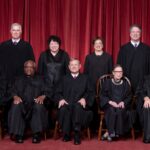The Computer and Communications Industry Association (CCIA) filed suit against the State of Texas in 2023 over HB 20 – a social media bill that does not allow big tech companies to moderate their content or their users’ speech. CCIA argues the bill violates the First Amendment rights of private businesses to maintain their platform due to government interference.
The Supreme Court ruled in favor of the CCIA 6-3 but sent HB 20 down to the lower courts to be adjudicated further.
In the Fifth Circuit Court of Appeals in Texas, the court has requested further information on the CCIA’s argument, which could result in the rearrangement of the organization’s scope of their challenge.
CCIA, alongside its co-plaintiff NetChoice, will tell the Fifth Circuit Court of Appeals in Texas that HB 20 violates “millions of unconstitutional applications.”
CCIA Senior Vice President and Chief of Staff Stephanie Joyce stated:
“Multiple courts, including the Supreme Court, have already expressed the view that Texas’ must-carry social media law attempts to force private actors to speak and thus violates the First Amendment. We look forward to securing a final judgment that this statute is unconstitutional and cannot remain on the books.”
A bill that was designed to protect the spirit of the First Amendment for Texans could ultimately be rejected by the protections of the First Amendment.
CCIA and its president, Matt Schruers have felt confident with precedent on their side. The Miami Herald won a Supreme Court case in 1974 that rejected the State of Florida’s ability to force news publications to provide “equal space to answer criticism and attacks on his record by a newspaper," also known as the "right to reply” bill.
It appears those defending Texas’ HB 20 would have to prove that the government and Big Tech work together in a capacity in which the government is limiting speech in collaboration with Big Tech companies.














